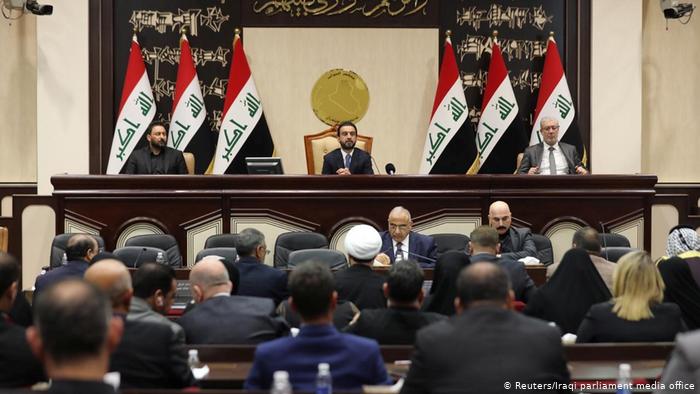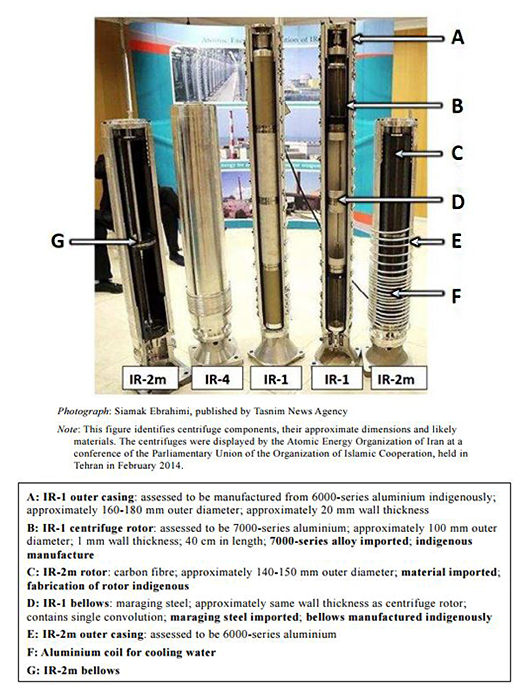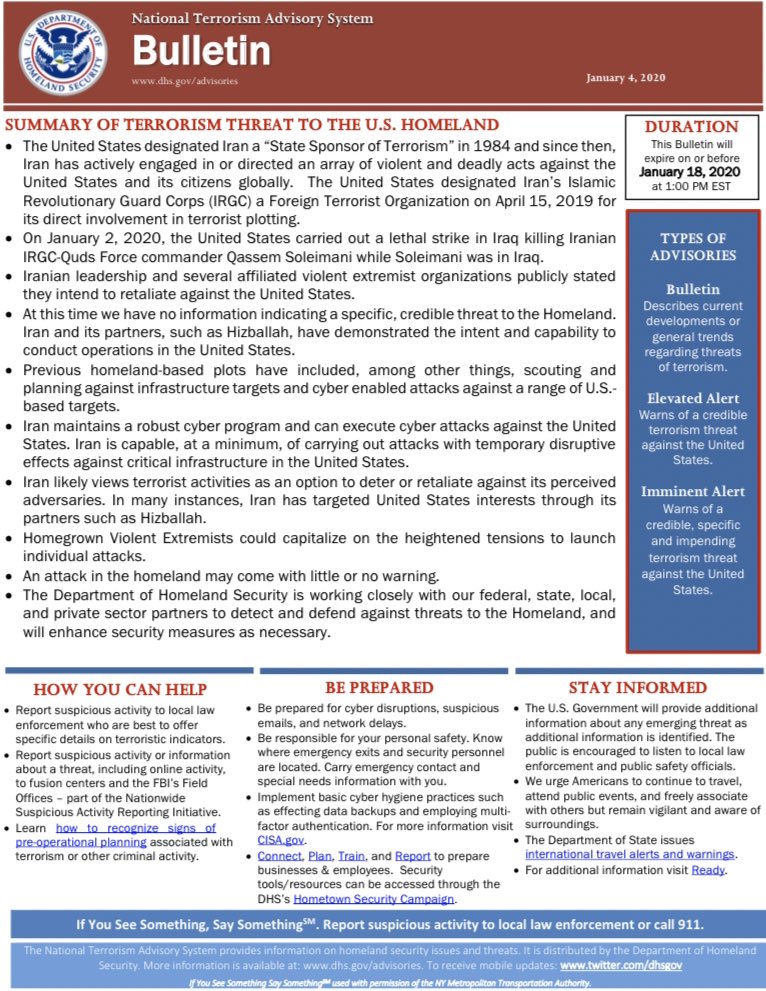The vote hardly is final and the United States military forces would likely not begin to exit Iraq for a year or more. In the meantime, the U.S. military has suspended all consular operations at the embassy in Baghdad and suspended all training operations of the Iraqi military.

For the details of the Iraq parliamentary vote, read on.
Key Takeaway: Iraq’s Parliament, the Council of Representatives (CoR), passed a non-binding resolution to cancel the request for military aid from the government of Iraq to the U.S.-led anti-ISIS coalition. The resolution does not require a U.S. withdrawal, which only the Prime Minister can order by rescinding the Status of Forces Agreement with the U.S. It is unclear whether caretaker Iraqi Prime Minister Adel Abdul Mehdi has the authority to do so. The CoR resolution sets political conditions to justify subsequent Iranian proxy attacks on U.S. forces and installations, however. Nationalist Shi’a Cleric Muqtada al Sadr also called for the mobilization of new “resistance” groups to support such attacks.
Iraq’s parliament passed a non-binding resolution rejecting the presence of U.S. and coalition forces in Iraq. 172 members of the Iraqi Council of Representatives (CoR) convened on Sunday, January 5 in an “extraordinary session” to discuss the U.S. airstrike that killed Iranian IRGC Quds Force Commander Qassem Soleimani and Iraqi Popular Mobilization Committee Deputy Chief and Kata’ib Hezbollah commander Abu Mehdi al-Muhandis on January 3, 2020. Kurdish political parties boycotted the session, as did many Sunni political parties. Caretaker Prime Minister (PM) Adel Abdul Mehdi submitted the resolution. It passed with 170 votes.[1]
The resolution does not require an immediate withdrawal of U.S. forces. The CoR’s resolution asks the Government of Iraq (GoI) to cancel the 2014 military aid request from the GoI to coalition forces. The resolution does not explicitly ask the GoI to revoke the State of Forces Agreement (SOFA) between the U.S. and Iraq.[2] It does, however, say the GoI “must work to end the presence of any foreign troops on Iraqi soil and prohibit them from using its land, airspace or water for any reason.” [3] It also calls on the Iraqi government to establish a timetable for the withdrawal of all foreign troops. The CoR cannot itself cancel the 2014 request for coalition support or the SOFA, which requires executive action from the PM. It is unclear if PM Mehdi has the legal authority to do so given his status as a caretaker PM. Mehdi resigned on November 29, 2019 during mass protests.
Nationalist Cleric Muqtada al-Sadr may participate in attacks on US forces and installations. The leader of Sadr’s Toward Reform bloc issued a statement to the CoR on Sadr’s behalf that included demands for an even greater response. In addition to withdrawing from U.S. security agreements, Sadr called for the immediate closure of the “Embassy of American Evil in Iraq,” the closure of U.S. bases in the country, the “humiliating expulsion” of U.S. troops, the “criminalization” of any communication with the U.S. government, and the boycott of American products.[4] In a tweet following the session, Sadr condemned the CoR resolution as insufficient and called on “the Iraqi resistance factions in particular and the factions outside of Iraq for an immediate meeting to announce the formation of “international resistance groups.”[5]
Implications: This resolution renders the maintenance of a U.S. or coalition military presence in Iraq politically difficult but does not yet legally require a U.S. withdrawal. However, it solidifies the Iranian narrative of a U.S. “occupation” of Iraq and sets political conditions to justify subsequent attacks on U.S. forces across the Middle East. These escalations will likely come not only from Iran’s direct proxy militias, but also from a pan-Shi’a resistance movement that Muqtada al-Sadr is now attempting to generate. The Iraqi Security Forces have up until this point depended on coalition military support to sustain pressure on the Islamic State (ISIS). Any withdrawal of coalition forces from Iraq offers ISIS increased freedom of movement and improves conditions for ISIS to reconstitute itself inside of Iraq and Syria.
[1] DO NOT GO TO SITE: “Shiite MPs draft legislation seeking to expel US troops from Iraq” Rudaw, 05 January 2020. https://www.rudaw.net/english/middleeast/iraq/05012020
[2]“Iraqi Lawmakers Urge End U.S. Troop Presence as Iran Mourns a Slain General,” New York Times, 05 January 2020. https://www.nytimes.com/2020/01/05/world/middleeast/iran-general-soleimani-iraq.html
[3] “Iraqi Parliament Passes Resolution to End Foreign Troop Presence,” Voice of America, 05 January 2020. https://www.voanews.com/middle-east/voa-news-iran/iraqi-parliament-passes-resolution-end-foreign-troop-presence
[4] DO NOT GO TO SITE: Iraqi Council of Representatives Readout of CoR Session, 05 January 2020. http://ar.parliament.iq/2020/01/05/%d9%85%d8%ac%d9%84%d8%b3-%d8%a7%d9%84%d9%86%d9%88%d8%a7%d8%a8-%d9%8a%d8%b5%d9%88%d8%aa-%d8%b9%d9%84%d9%89-%d9%82%d8%b1%d8%a7%d8%b1-%d9%86%d9%8a%d8%a7%d8%a8%d9%8a-%d8%a8%d8%a5%d9%86%d9%87%d8%a7%d8%a1/
[5] Muqtada al-Sadr Twitter 05 January, 2020: @Mu_AlSadr https://twitter.com/Mu_AlSadr/status/1213829592789782529


